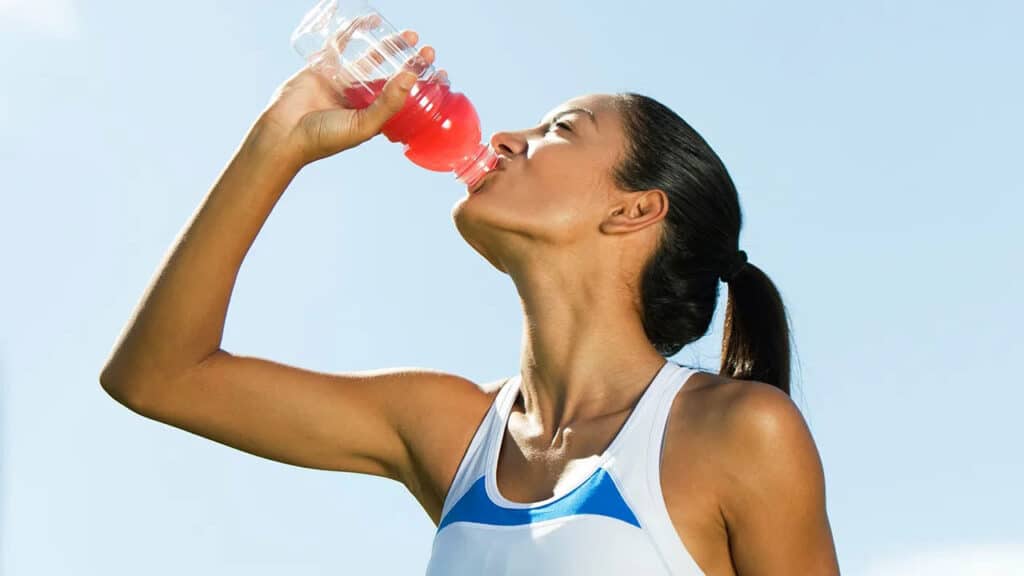You may have noticed a trend in recent years. A bottle of water is not just a bottle of water; it’s a bottle of water with added electrolytes. The label says this like it’s a good thing, but do you actually know what electrolytes are and if they’re as important as people say?
Electrolytes, perhaps unsurprisingly given the name, have an electrical charge. They’re also essential minerals, like sodium, potassium, calcium, magnesium, chloride and phosphate. We need them in the body to make sure water moves around properly. This affects your fluid balance, blood pressure, blood acidity and muscle contraction.
Most water has at least some electrolytes in it, from tap water to the fancier bottled stuff. The only exception is if it explicitly says it’s distilled, in which case an effort has been made to extract minerals and anything else extraneous. The level of electrolytes can vary pretty drastically, however.
Some beverages, especially specialist sports drinks, will proudly advertise that they’ve been supplemented with additional electrolytes. There is a logic behind this. We lose a lot of water when we exercise, primarily through sweat. Sweat contains electrolytes, too. After a heavy session, your dehydration is likely to include electrolyte depletion.
In particular, sweat causes you to lose a lot of sodium, plus smaller amounts of magnesium, potassium and calcium. These are the electrolytes that sports drinks aim to boost. Without them, your exercise may be less effective and you may become slower and weaker, in addition to losing the ability to concentrate.
It’s worth noting that most electrolyte-enhanced sports drinks are designed for serious athletes. They’re for if you’re exercising particularly heavily and sweating to excess, or if you’re training in an excessively hot environment. You probably don’t need them if you’re a more casual performer. They tend to be high in sugar, and you don’t want those excess calories if you’re not going to be burning them off quickly.
The other situation where you might benefit from an electrolyte boost is when you’re ill. Dehydration can be a side effect of vomiting and diarrhea. There are special oral rehydration solutions that don’t have excessive sugar levels and are particularly good for sick and dehydrated children.
So, yes, electrolytes are important to the body, but electrolyte-enhanced water isn’t inherently better than water without electrolytes. It depends on the specific situation.




